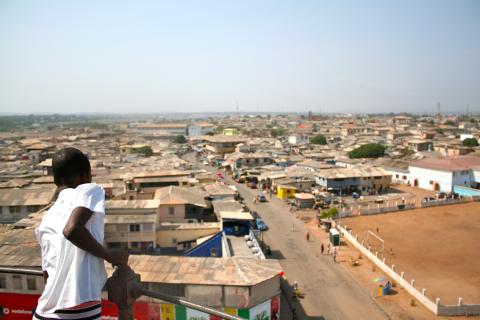
Though there have been initiatives, as early as the 1990s, to clean the drainage and establish a working trash disposal network few meaningful changes were made.

The past few weeks Ghana's capital city, Accra - the sole capital in all of West Africa where a majority of the roads do not have modern drainage networks - has been rocked floods over the past few weeks.
In many neighborhoods filth stifles the city's drains and gutters preventing them from operating properly. Debris overflows everywhere. After more than 200 people were killed last week, the debris still causes additional problems and may even lead to a health epidemic.
According to the World Bank, the failure of Ghana's officials to improve public sanitation and hygiene will limit the growth of the country by 1.6 percent.
Though there have been initiatives, as early as the 1990s, to clean the drainage and establish a working trash disposal network few meaningful changes were made.
The World Bank has also stated that the sewer system reaches less than 10 percent of the population. People do not have areas to dispose of garbage and many are forced to live amongst garbage and waste.
The Health Minister, Alex Segbefia, has publicly warned that the floods combined with mass refuse could cause a new wave of cholera to break out.
The city's government has placed a hold on $600 million for a project that's backed by the U.S. Export-Import Bank to help keep residents safe.
The project which was started after the havoc of the 2011 flood was never completed. The lagoon that was supposed to be created for the city's wastewater to occupy was stop mid-way and instead destroyed natural vegetation and left many hills of foul sludge.
President John Mahama said that he will work hard to prevent any new disasters. Ghana is looking for new methods, money, and management that can address catastrophes before they happen.